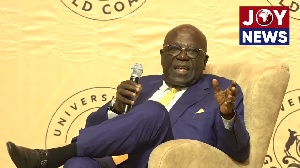Africa News of Friday, 4 April 2025
Source: www.ghanawebbers.com
Africa Must Not Be Left Behind, Kagame Tells Artificial Intelligence Summit
On Thursday, April 3, President Paul Kagame called on African leaders to embrace artificial intelligence (AI). He urged them to take bold actions so Africa is not left behind in technology.
Speaking at the Global AI Summit in Kigali, he emphasized the need for strategic investments. These include digital infrastructure, workforce development, and continental integration. "Africa can't afford to be left behind," he stated. "We must adopt, cooperate, and compete."
The two-day summit gathered over 1,000 policymakers and business leaders. They aim to elevate Africa's AI ambitions on the global stage. Kagame praised the African Union and Smart Africa for establishing the Africa AI Council. This council will guide AI development across the continent.
He noted that Africa has immense potential for innovation and creativity. This advantage can be amplified by AI. "We should build a stronger foundation for connectivity," he added.
A Google report last year projected that AI could add $30 billion to sub-Saharan Africa's economy by 2030. Another estimate suggests AI could raise Africa's GDP by 3 percent to $2.9 trillion by then.
However, Kagame expressed concern about geopolitical competition overshadowing technological progress. He pointed out that tech development is currently concentrated in a few countries.
He warned that without reliable internet and stable power supply, Africa would struggle with AI integration. He urged governments and businesses to invest in modern infrastructure for AI deployment.
Kagame also highlighted the importance of building a skilled workforce. "Africa needs its own data scientists, engineers, and cybersecurity experts," he said. He mentioned Rwanda's efforts in establishing centers of excellence for youth training.
"Our next generation must be empowered," he concluded. "Africans will soon represent most of the growth in the global workforce."











